All Stories
-
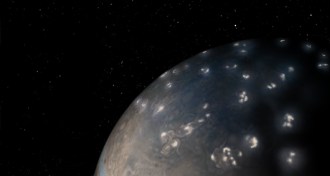 Astronomy
AstronomyOn Jupiter, lightning flashes from storms swirling at the poles
After almost 40 years, scientists have discovered that Jupiter has lightning that is similar to lightning on Earth — it just happens in a different place.
-
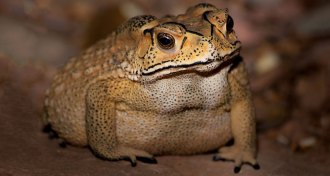 Ecosystems
EcosystemsMadagascar’s predators are probably vulnerable to toxic toads
The Asian common toad, an invasive species in Madagascar, produces a toxin in its skin that’s probably toxic to most of the island’s predators.
-
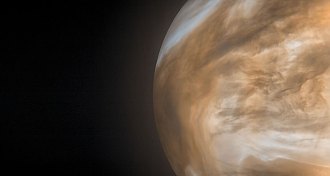 Planetary Science
Planetary ScienceVenus’ thick atmosphere speeds up the planet’s spin
Venus’ thick atmosphere can push on mountains on the surface, changing its rotation period by a few minutes every day.
-
 Psychology
PsychologyPhone apps are helping scientists track suicidal thoughts in real time
Researchers are using smartphones to tap into the ups and downs of suicidal thinking that occur over hours and days, hoping to help prevent suicides.
By Bruce Bower -
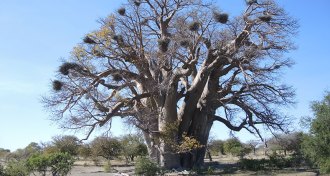 Plants
PlantsThe most ancient African baobabs are dying and no one knows why
Scientists aren’t sure what’s killing the oldest African baobabs, nine of which have lost big chunks or died in the last 13 years.
By Susan Milius -
 Physics
PhysicsThe Large Hadron Collider is getting an upgrade
Revamping the accelerator’s equipment will increase the rate of proton collisions.
-
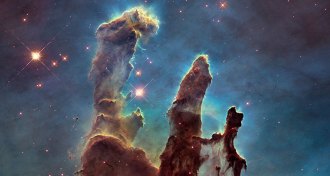 Astronomy
AstronomyMagnetic fields may be propping up the Pillars of Creation
Scientists made a map of the magnetic field within the Pillars of Creation, a star-forming area depicted in an iconic Hubble Space Telescope image.
-
 Astronomy
AstronomyIn 1968, scientists thought they were close to detecting gravity waves
Despite an unverified discovery in 1968, spacetime ripples remained elusive for nearly 50 years.
-
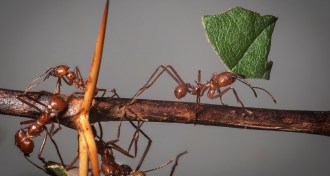 Animals
AnimalsLeaf-cutter ants pick up the pace when they sense rain
Leaf-cutter ants struggle to carry wet leaves, so they run to avoid rain.
By Yao-Hua Law -
 Health & Medicine
Health & MedicineThe number of teens who report having sex is down
About 40 percent of high school students are having sex, the lowest amount in the last three decades.
-
 Earth
EarthUnderwater fiber-optic cables could moonlight as earthquake sensors
The seafloor cables that ferry internet traffic across oceans may soon find another use: detecting underwater earthquakes.
-
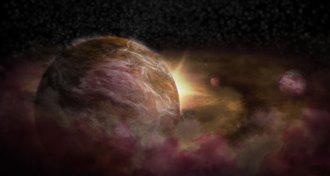 Astronomy
AstronomySwirling gases reveal baby planets in a young star’s disk
A new technique pinpointed three planets forming around a young star about 330 light-years from Earth.